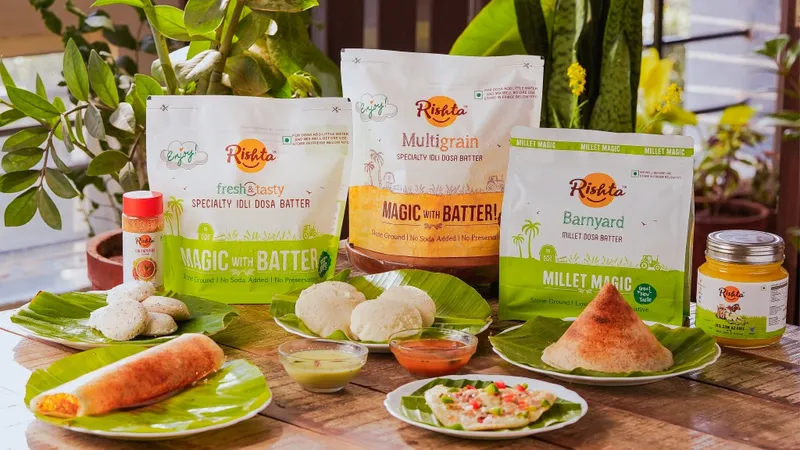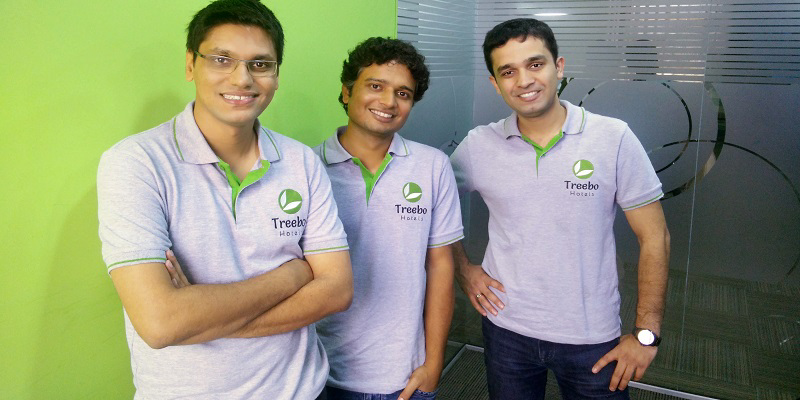How this 100-year-old food brand reinvented itself to stay relevant for today’s consumers
Bengaluru-based Rishta Foods, started by third-generation entrepreneur Harsh Gupta, is currently serving approximately two lakh people across the country.
In 1924, Seth Seetharam Sahuwala founded a small grain mill in Rajasthan. His son, Jagdish Rai, later joined the business and made it more robust. Using the expertise that he gained working with his father, Rai established JRG Food Products Pvt Ltd in 1961. The Bhubaneswar-based food company was supplying processed oil, flour, and rice.
Little did Rai know that following a simple principle—they will only serve what they eat—would, in the years to come, distinguish them from competitors, inspire future generations, and pave the road for a 100-year legacy brand. Rai's son, Subhash Chandra, had the vision of getting into the consumer division.
He along with his son Harsh Gupta founded in 2000. Harsh is the third generation in the business and is pushing the business to new heights by integrating new ideas with the existing infrastructure.
In 2015, Gupta added a new vertical to the business and entered the fresh food category with idli-dosa batter and named it Rishta Foods. The company is currently serving approximately two lakh people across the country. With other products combined, the company serves around five lakh households.
Rishta has an annual turnover of Rs 100 crore. Out of this, Rs 25 crore comes from the fresh food side of the business, and Rs 75 crore comes from the staple food side.
Building a legacy brand
Before 2000, JRG Food Products worked on a B2B (business-to-business) model and supplied products to businesses or large corporates like Britannia. It was a firm that focused heavily on volume. “Your efficiency improves when you deal with such a large volume,” says Gupta.
In 2000, when he joined the business, his father had the vision of getting into the consumer segment and serving them directly. They researched the market, consumer demands, and existing obstacles before launching the brand, Rishta. They started Rishta with packed whole wheat atta that served as their primary product till 2015.
“We had the first-movers’ advantage. At that time Aashirvaad was non-existent. There were not many national players. We were local and we had a lot of ground understanding,” says Gupta.
The company already had a strong network of retailers who used to purchase from them via wholesalers.
In the staple food vertical, Rishta ventured into products like multigrain atta, wholewheat atta, rice bran oil, multigrain sooji, and roasted sooji. It is currently available at around 10,000 retail outlets across India.
Venturing into the fresh food category
Over time, Gupta observed that as more national companies emerged, "the staple food market was becoming commoditised" and their room for expansion was shrinking. The company then ventured into the fresh food category with Rishta Foods.

Rishta Products
“Our scope for growth with only staple food was becoming limited. We found an opportunity in the idli-dosa batter category where we could add value,” says Gupta. They wanted to make it a staple in every household, especially for children.
“The challenge lied in how to scale it in terms of geographies because no fresh food business was done on scale,” says the founder.
According to him, apart from iD Fresh no other brand had been able to do it on such a scale in the fresh food business. “We started from Bhubaneshwar and managed to scale it in Delhi and Delhi NCR in 2016, and then slowly expanded to other cities,” he says. Rishta is currently headquartered in Bengaluru.
The company was started to offer products that would encourage kids to eat at home and serve as an alternative to unhealthy snacks. Additionally, they envisioned using their knowledge of the company's processing side to produce products that would outperform those in the market in terms of quality and flavor.
In order to provide healthier options, Rishta started adding ingredients like rock salt and ragi to the idli-dosa batter. Presently, the batter is available in three categories—Regular, Multigrain, and Barnyard Millet. The price ranges from Rs 120/kg to Rs 130/kg.
During Covid, when people’s focus shifted to online, it gave the business the real impetus to grow.
“We are priced higher than many other brands, but the customers still choose us for our quality. Our guiding principle has been the parameter set by my grandfather—we will only serve what we eat at home,” says Gupta.
The company counts iD Fresh and MTR as its competitors in the fresh food segment.
Since it is a fermented product, the company focuses a lot on how it is handled, packaged, and transported.
Rishta has manufacturing facilities in Ghaziabad, Bhubaneswar, and Bengaluru, with around 200 people working in the fresh foods segment.
For marketing, the company uses mostly traditional methods like providing samples of products through retail channels to customers. It is also trying to create some visibility on retail points through posters and trial offers. It is also making use of social media for marketing by putting out content like reels on Instagram.
According to a report by Business Wire, the market for ready-to-eat food in India is anticipated to grow by $751.43 million between 2022 and 2026, expanding at a CAGR of 18.63%.
The company’s growth has been slow in the last few years. “Since we are bootstrapped, growth has been slow. It is all organic,” says Gupta.
Challenges along the way
“Once you start the business, you get to know the actual challenges. We occasionally forget that it might not work,” says Gupta.
The fresh food segment is challenging and it is difficult to scale geographically. “There was no ecosystem wherein sensitive products could thrive,” he adds. The company worked hard to develop an ecosystem where the products reach the customers in the right condition. This, according to Gupta, was the biggest challenge.
Planning how much stock to place in the market so that it gets liquidated is also sometimes hard to determine. Over time, the company learned all of this, and customers’ feedback helped them improve in many areas.
Plans ahead
“Our mission with Rishta Foods is stronger kids, stronger nation,” says Gupta. The company aims to offer nutritious products that children can enjoy.
Rishta Foods also aims to come up with innovative products that are better in taste and quality.
The brand is currently available in all major cities. It plans to penetrate deeper into these cities and get into more homes in the future.
(The story was updated to change the category)
Edited by Megha Reddy








![[Startup Bharat] Bhubaneswar-based Santaan aims to make fertility care accessible in Tier II and III cities](https://images.yourstory.com/cs/2/b094ec506da611eab285b7ee8106293d/imageonline-co-logoadded54-1626770750878.jpg)
